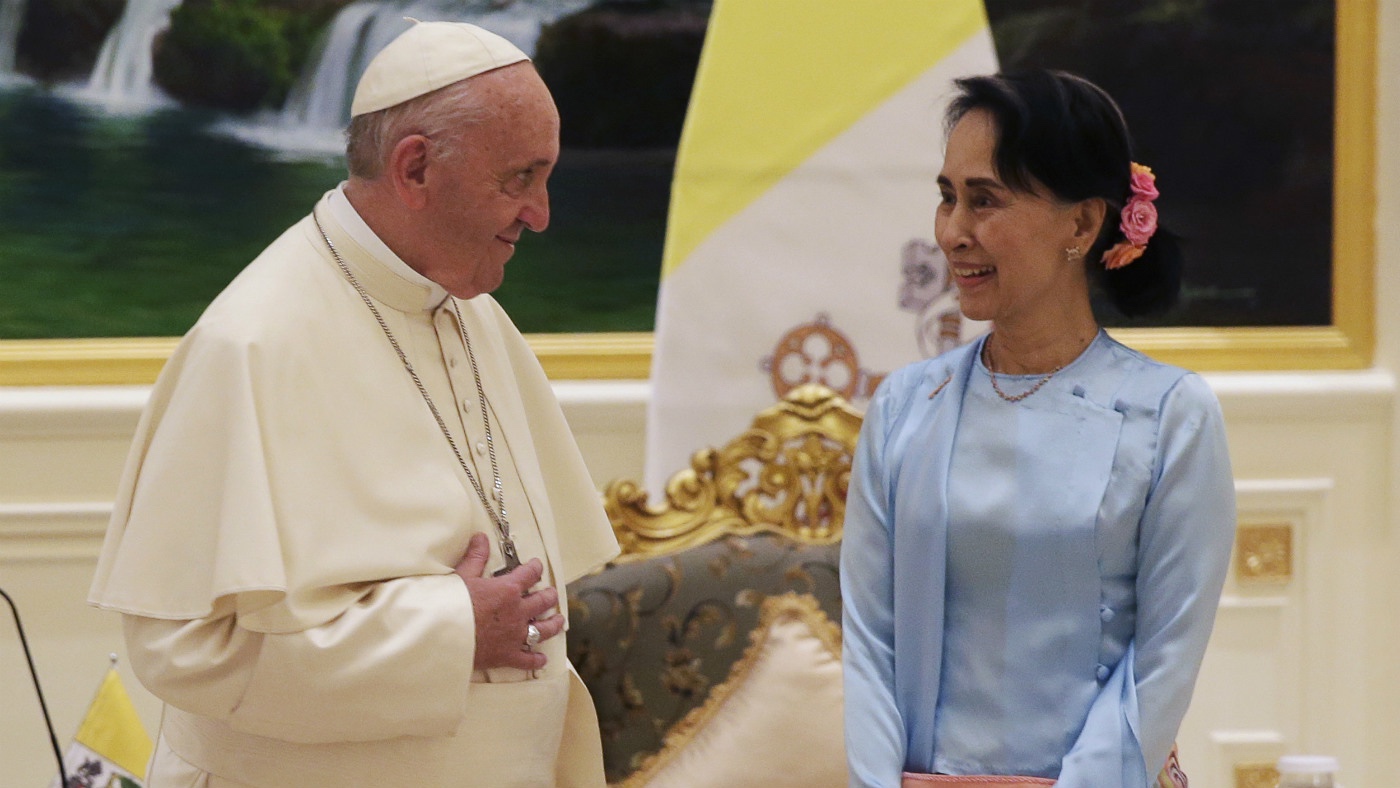Pope Francis and Aung San Suu Kyi avoid Rohingya crisis discussion
Pontiff skirts issue of persecuted Muslim minority amid fears for Myanmar’s Catholic community

A free daily email with the biggest news stories of the day – and the best features from TheWeek.com
You are now subscribed
Your newsletter sign-up was successful
Pope Francis and Myanmar’s de facto leader Aung San Suu Kyi concluded a highly anticipated meeting in Naypyidaw today without discussing the Rohingya Muslim crisis.
The Pope’s speech afterward also did not include any mention of the plight of the 600,000 Rohingya who have fled their homes in Myanmar’s Rakhine State to Bangladesh since August, to escape what the UN describes as “ethnic cleansing” by Burmese security forces. Instead, he offered encouragement “to all those who are working to build a just, reconciled and inclusive social order”.
“The future of Myanmar must be peace, a peace based on respect for the dignity and rights of each member of society, respect for each ethnicity,” the Pope said.
The Week
Escape your echo chamber. Get the facts behind the news, plus analysis from multiple perspectives.

Sign up for The Week's Free Newsletters
From our morning news briefing to a weekly Good News Newsletter, get the best of The Week delivered directly to your inbox.
From our morning news briefing to a weekly Good News Newsletter, get the best of The Week delivered directly to your inbox.
Several high-profile figures, including former UN secretary general Kofi Annan and Myanmar Cardinal Charles Maung Bo, had urged the Pontiff not to mention the word Rohingya, “fearing a potential blowback” against the country’s tiny Catholic community, according to the NBC News website.
The BBC’s Jonathan Head, reporting from Yangon, said: “The Pope cannot avoid an issue on which he has been blunt in the past, but if he does become too outspoken, the Buddhist majority here will just not listen to him - so he has a very fine line to tread.”
In her address to dignitaries, Suu Kyi also failed to mention the Rohingya by name, Reuters reports, saying instead: “Of the many challenges that our government has been facing, the situation in the Rakhine has most strongly captured the attention of the world.”
Pope Francis also met with the chief of the Burmese military, General Min Aung Hlaing, as he begins a week-long trip to Burma and Bangladesh.
A free daily email with the biggest news stories of the day – and the best features from TheWeek.com